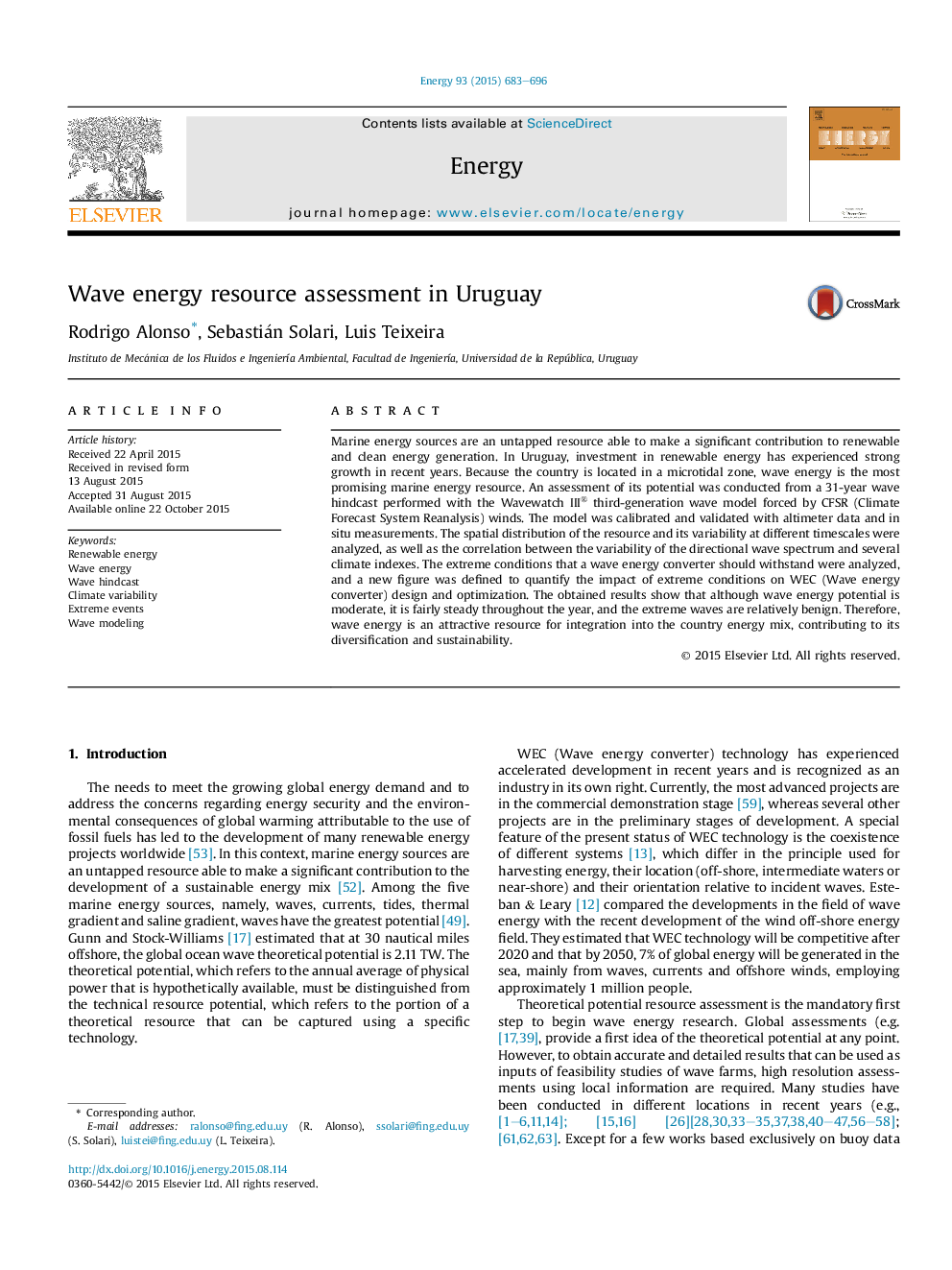| Article ID | Journal | Published Year | Pages | File Type |
|---|---|---|---|---|
| 1731127 | Energy | 2015 | 14 Pages |
Abstract
Marine energy sources are an untapped resource able to make a significant contribution to renewable and clean energy generation. In Uruguay, investment in renewable energy has experienced strong growth in recent years. Because the country is located in a microtidal zone, wave energy is the most promising marine energy resource. An assessment of its potential was conducted from a 31-year wave hindcast performed with the Wavewatch III® third-generation wave model forced by CFSR (Climate Forecast System Reanalysis) winds. The model was calibrated and validated with altimeter data and in situ measurements. The spatial distribution of the resource and its variability at different timescales were analyzed, as well as the correlation between the variability of the directional wave spectrum and several climate indexes. The extreme conditions that a wave energy converter should withstand were analyzed, and a new figure was defined to quantify the impact of extreme conditions on WEC (Wave energy converter) design and optimization. The obtained results show that although wave energy potential is moderate, it is fairly steady throughout the year, and the extreme waves are relatively benign. Therefore, wave energy is an attractive resource for integration into the country energy mix, contributing to its diversification and sustainability.
Related Topics
Physical Sciences and Engineering
Energy
Energy (General)
Authors
Rodrigo Alonso, Sebastián Solari, Luis Teixeira,
